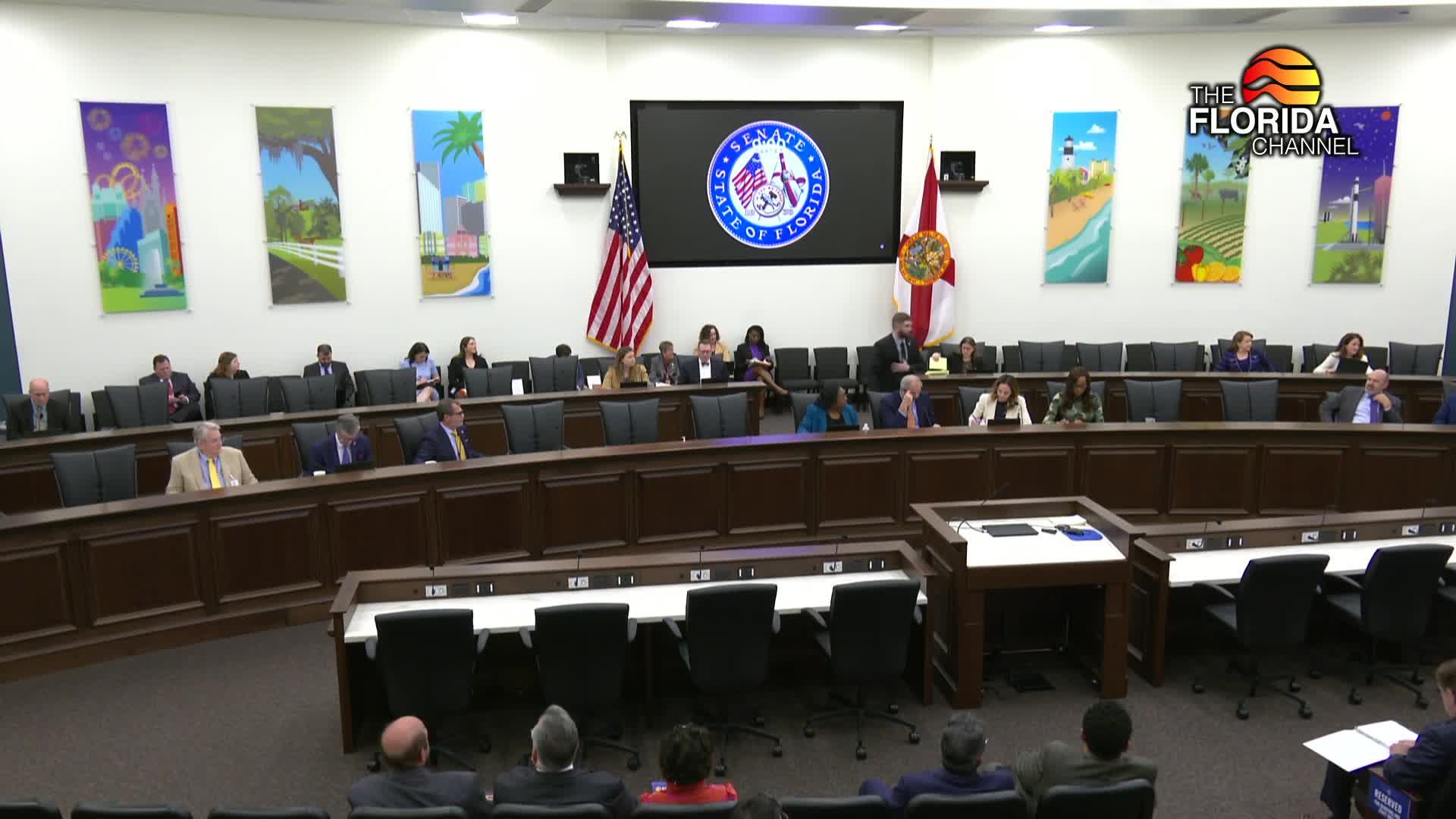Article not found
This article is no longer available. But don't worry—we've gathered other articles that discuss the same topic.
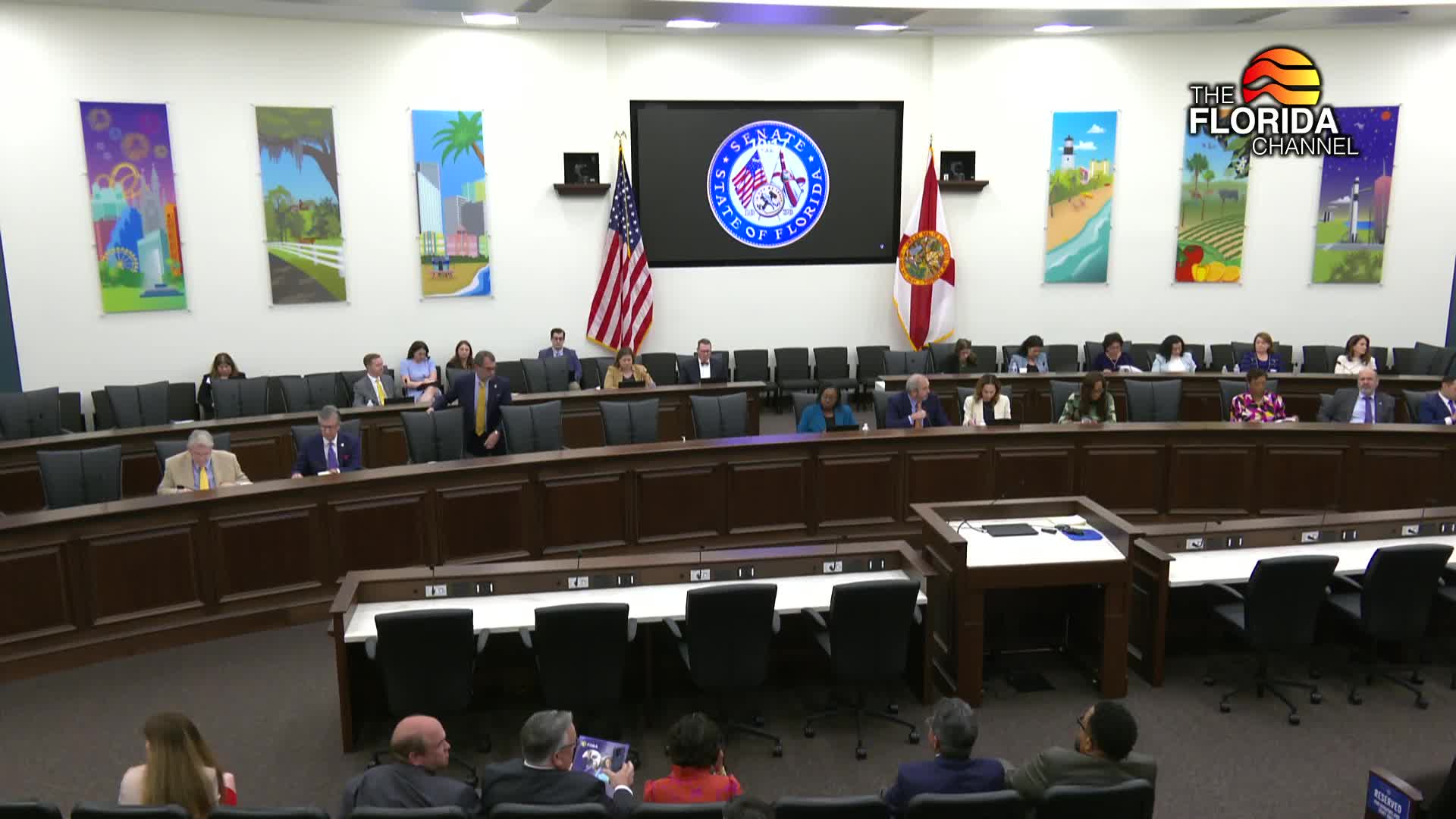
Committee OKs roadway designation honoring Harris Rosen and adds designation for Senator Geraldine Thompson
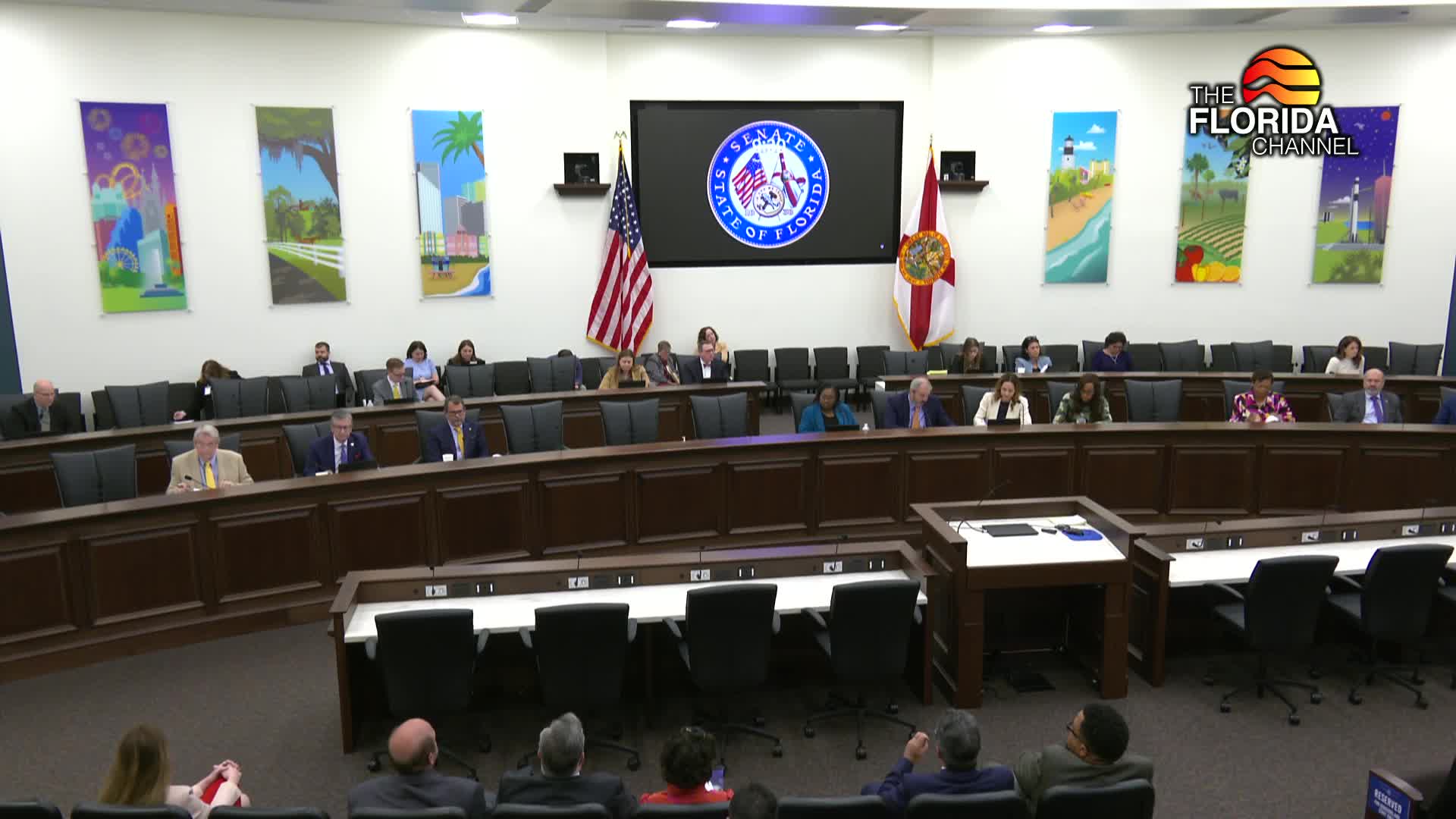
Committee advances bill to expand compensation for wrongfully convicted Floridians
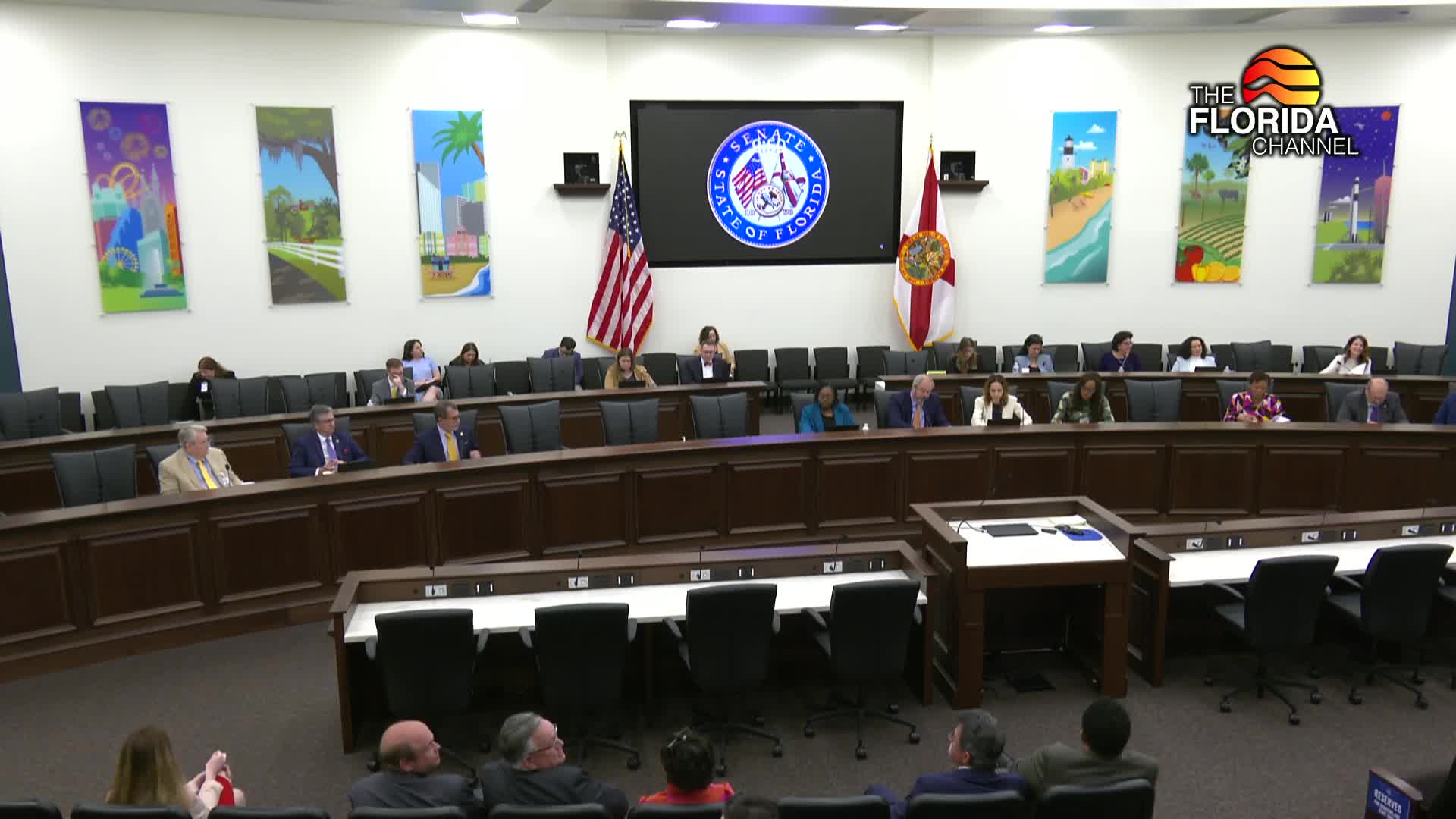
Committee advances bill increasing penalties for violence against law enforcement and clarifies 'resisting' standard; defense groups urge restoring 'good faith'
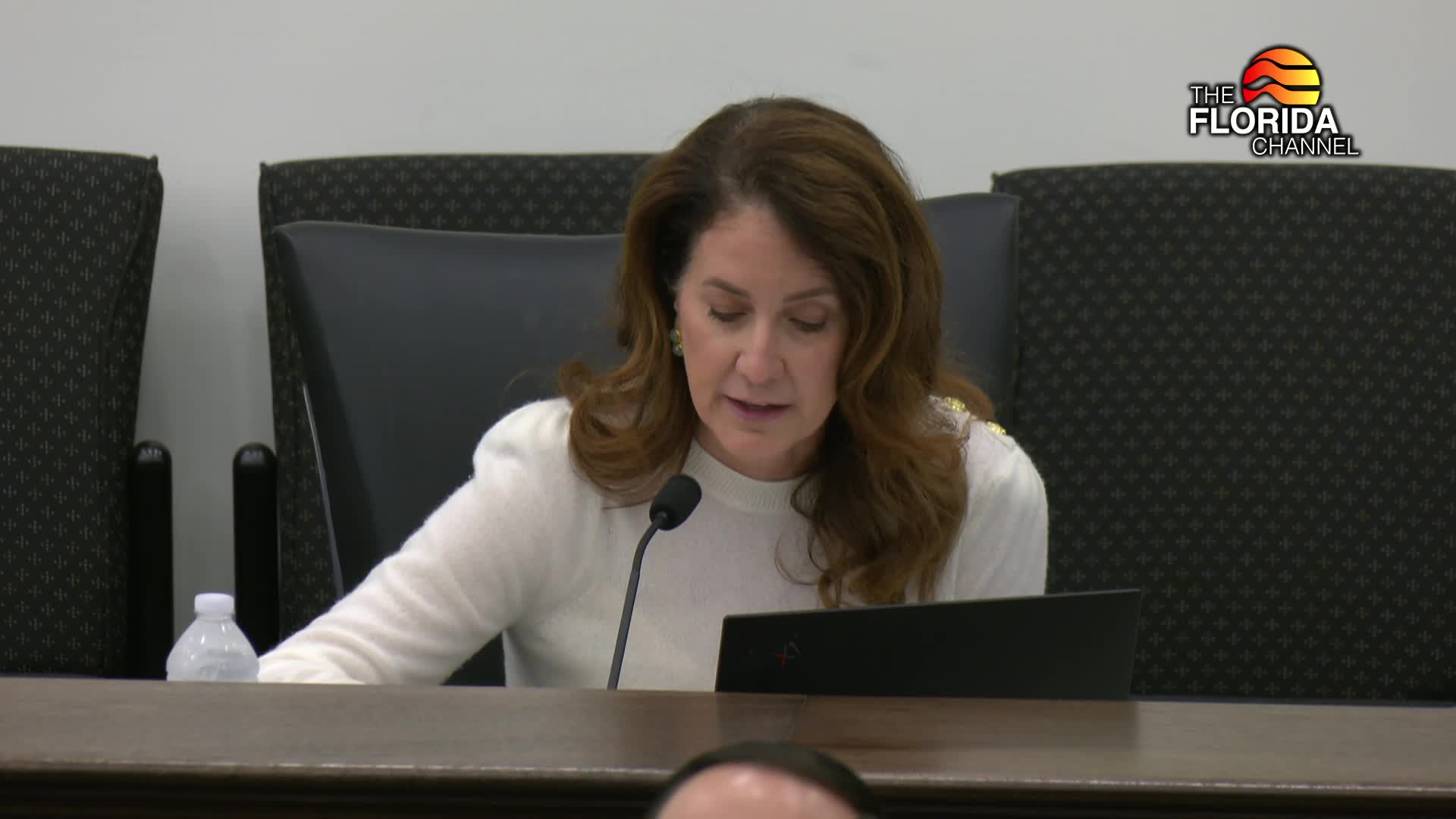
Committee removes statewide middle/high school start-time mandate, returns scheduling decisions to districts
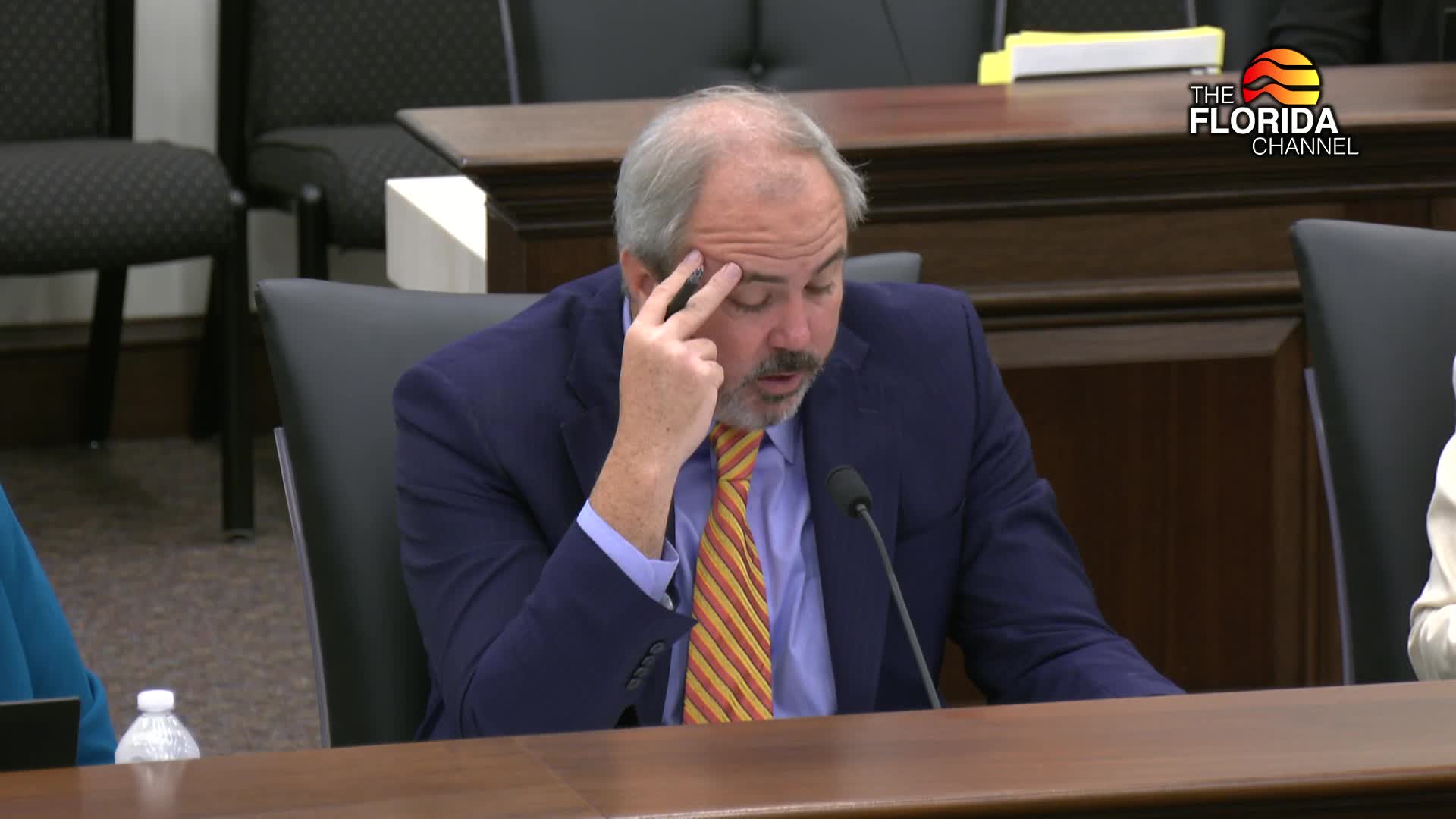
Committee advances bill directing DOE to develop workforce credentials for students with autism
